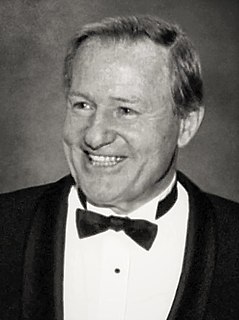The New Zealand National Party, shortened to National or the Nats, is a centre-right political party in New Zealand. It is one of two major parties that dominate contemporary New Zealand politics, alongside its traditional rival, the Labour Party.

The Christian Heritage Party of New Zealand was a New Zealand political party espousing Christian values and conservative views on social policy. Although it never won seats in an election, it came close to doing so in 1996 as part of the Christian Coalition and briefly had a member in Parliament.
The Alliance was a left-wing political party in New Zealand. It was formed at the end of 1991 by the linking of four smaller parties. The Alliance positioned itself as a democratic socialist alternative to the centre-left New Zealand Labour Party. It was influential throughout the 1990s, but suffered a major setback after its founder and leader, Jim Anderton, left the party in 2002, taking with him several of its members of parliament (MPs). After the remaining MPs lost their seats in the 2002 general election, some commentators predicted the demise of the party.

James Patrick Anderton was a New Zealand politician who led a succession of left-wing parties after leaving the Labour Party in 1989.

Ruth Margaret Richardson is a New Zealand retired politician of the National Party who served as Minister of Finance from 1990 to 1993. Her 1991 budget, which she dubbed the "Mother of all Budgets", formed the catalyst for her party's economic reforms known in the media as "Ruthanasia".

The 1999 New Zealand general election was held on 27 November 1999 to determine the composition of the 46th New Zealand Parliament. The governing National Party, led by Prime Minister Jenny Shipley, was defeated, being replaced by a coalition of Helen Clark's Labour Party and the smaller Alliance. This marked an end to nine years of the Fourth National Government, and the beginning of the Fifth Labour Government which would govern for nine years in turn, until its loss to the National Party in the 2008 general election. It was the first New Zealand election where both major parties had female leaders.

The New Zealand Social Credit Party is a political party which served as the country's third party from the 1950s through into the 1980s. The party held a number of seats in the New Zealand House of Representatives, although never more than two at a time. It renamed itself the New Zealand Democratic Party from 1985 to 2018, and was for a time part of the Alliance from 1991 to 2002. It returned to the Social Credit name in 2018.

The 1993 New Zealand general election was held on 6 November 1993 to determine the composition of the 44th New Zealand Parliament. Voters elected 99 members to the House of Representatives, up from 97 members at the 1990 election. The election was the last general election to use the first-past-the-post electoral system, with all members elected from single-member electorates.

This article discusses Christian politics in New Zealand.
The Christian Democrat Party of New Zealand was a Christian socially conservative political party established in 1995. It contested the 1996 general election as part of the Christian Coalition with the Christian Heritage Party.
The New Zealand Liberal Party founded in 1991 was a splinter group of the National Party.

The 45th New Zealand Parliament was a term of the Parliament of New Zealand. Its composition was determined by the 1996 election, and it sat until the 1999 election.

The 44th New Zealand Parliament was a term of the Parliament of New Zealand. Its composition was determined by the 1993 elections, and it sat until the 1996 elections.

The 43rd New Zealand Parliament was a term of the Parliament of New Zealand. Its composition was determined by the 1990 elections, and it sat until the 1993 elections.
Gilbert Colin Myles is a former New Zealand politician who entered Parliament for the National Party in 1990, then split from the party in 1991 and sat as an independent, before representing the Liberal Party, the Alliance and the New Zealand First party.
The Fourth National Government of New Zealand was the government of New Zealand from 2 November 1990 to 27 November 1999. Following electoral reforms in the 1996 election, Jim Bolger formed a coalition with New Zealand First. Following Bolger's resignation, the government was led by Jenny Shipley, the country's first female Prime Minister, for the final two years.

This article gives an overview of Christian democracy in the Netherlands, which is also called confessionalism, including political Catholicism and Protestantism. It is limited to Christian democratic parties with substantial support, mainly proved by having had a representation in parliament. The sign ⇒ means a reference to another party in that scheme.
Hamish MacIntyre is a former New Zealand politician who at various times represented the National Party, Liberal Party, and the Alliance.
By-elections to the 37th Canadian Parliament were held to fill vacancies in the House of Commons of Canada between the 2000 federal election and the 2004 federal election. The Liberal Party of Canada led a majority government for the entirety of the 37th Canadian Parliament, with little change from by-elections.







